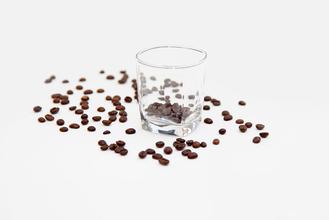Balanced and soft Salvadoran Coffee Flavor description of varieties and characteristics of boutique Coffee
El Salvador's coffee accounts for 40% of the country's exports, and it is usually picked in November, December and January-March of the following year. The export of raw beans lasts almost all year round. Coffee is produced in seven of the country's 14 provinces, with the largest number in the northwestern provinces of chalatenango and santa ana. El Salvador produces 100% Arabica coffee, 68% of which is bourbon, which usually grows at an altitude of 1062 Mel 1972 meters. On the other hand, El Salvador has a unique mountain, river and plateau, which provides a suitable environment for the growth of bourbon coffee. At the same time, El Salvador's suitable temperature, abundant precipitation and fertile soil are also indispensable natural conditions for breeding high-quality coffee beans. Like other typical island beans, Salvadoran coffee is balanced, soft and good in texture.
El Salvador boutique coffee is concentrated in the volcanic rock producing areas of Santa Ana in the west and Charantanan fruit in the northwest. In recent years, the top 10 cup tests are almost entirely from these two producing areas, with an altitude of about 9-1500 meters, mainly bourbon (68%). Followed by Pacas (29%), mixed-race Pakamara, Dulaai and Kaddura accounted for only 3%.
The coffee harvest lasts from November to March. The fresh fruit of coffee is picked by hand.
On the whole, Salvadoran coffee inherits the mild quality of Sino-American coffee, which is soft, slightly sour and has beautiful sweetness. At the same time, it also has its own characteristics: the aromatic taste is slightly sour and very soft; it is pure and has no miscellaneous flavor, and the taste balance is excellent; the smooth feeling like cream chocolate is impressive; the dense feeling of coffee in the mouth makes the coffee have a deep taste, and the long aftertaste Pacamara varieties are artificially cultivated varieties of Pacas and Maragogipe. It was first cultivated by researchers in El Salvador in 1958. Pacamara is an excellent variety under rare artificial breeding, which is better than blue, and perfectly inherits the advantages of the mother plant. Both the excellent taste of Pacas and the large size of Maragogipe are inherited by raw bean granules. The bean body is at least 70% and 80% of that of elephant beans, with more than 17 orders and more than 100% and more than 18 eyes. Average bean length 1.03 cm (general bean about 0.8-0.85 cm) average bean width 0.71 cm (general bean about 0.6-0.65), thickness 0.37 cm, bean shape plump and round. The biggest feature of this variety is that it is sour, lively and tricky, sometimes biscuit, sometimes fruity, thick and greasy. The quality is the best from El Salvador and Guatemala.

Important Notice :
前街咖啡 FrontStreet Coffee has moved to new addredd:
FrontStreet Coffee Address: 315,Donghua East Road,GuangZhou
Tel:020 38364473
- Prev

Cuban Crystal Mountain Coffee Flavor description Variety producing area characteristics introduction to the taste of high-quality coffee beans
The longest river in Cuba, the Ro Cauto, is 370km long. [1] Cuba has more than 200 rivers and thousands of streams, most of which run north-south, so the current is shallow and fast. The Cato River, which flows east-west to the north of the Maestra Mountains, is the largest river in Cuba, but it is only 370 kilometers long and is the only navigable river in Cuba. Cuba's coastline is tortuous and average.
- Next

The fragrance of the taste of Nicaragua coffee varietiesProducing area Flavor description Taste characteristics Introduction
Nicaragua is now one of the poorest countries in Central America. Because of its poor economic base, the coffee industry is still in a relatively backward state, while coffee farmers are in an extremely poor state. Fortunately, Nicaragua's coffee has received some foreign aid funds to improve the quality of its coffee. Nicaragua's Madagerba, Chinodega, Segovia region of coffee
Related
- Detailed explanation of Jadeite planting Land in Panamanian Jadeite Manor introduction to the grading system of Jadeite competitive bidding, Red bid, Green bid and Rose Summer
- Story of Coffee planting in Brenka region of Costa Rica Stonehenge Manor anaerobic heavy honey treatment of flavor mouth
- What's on the barrel of Blue Mountain Coffee beans?
- Can American coffee also pull flowers? How to use hot American style to pull out a good-looking pattern?
- Can you make a cold extract with coffee beans? What is the right proportion for cold-extracted coffee formula?
- Indonesian PWN Gold Mandrine Coffee Origin Features Flavor How to Chong? Mandolin coffee is American.
- A brief introduction to the flavor characteristics of Brazilian yellow bourbon coffee beans
- What is the effect of different water quality on the flavor of cold-extracted coffee? What kind of water is best for brewing coffee?
- Why do you think of Rose Summer whenever you mention Panamanian coffee?
- Introduction to the characteristics of authentic blue mountain coffee bean producing areas? What is the CIB Coffee Authority in Jamaica?

